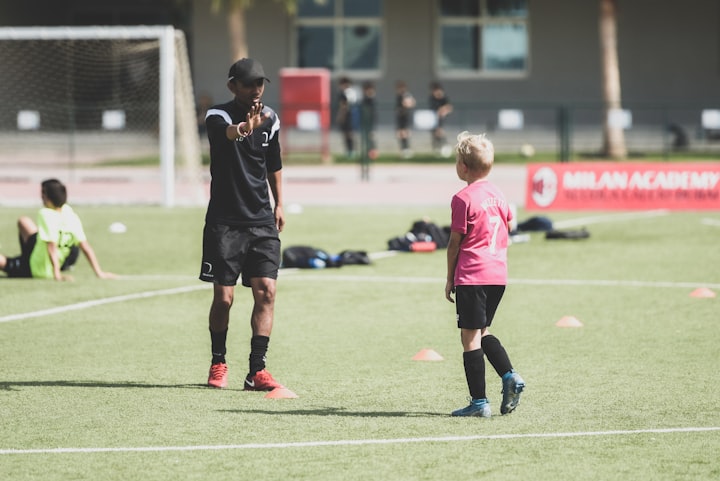How to Support Your Team When You're Not Playing
Believe it or not, sitting on the bench can be a good thing.

When an athlete makes the team, do they want to sit on the bench?
Of course not. Anyone who tells you otherwise isn’t being truthful. Sure, kids often get into sports because they love it or they want to hang out with their friends. But no one wants to be a backup, or worse, not play because they’re injured.
Unfortunately, there are only so many starting spots to go around. Unless your child is in a league where everybody gets to play, they will often have to compete for playing time.
Here’s how athletes at any level can help their team from the sidelines. This could apply to adult athletes, too.
Get the Facts
It’s so tempting for a parent to run to a coach and whine about their child’s lack of playing time, or for a player to visibly sulk because he or she isn’t a starter.
There’s a better way, says Dan Keller, a youth baseball coach in Southern California and CEO of Dugout Captain , a free online resource for baseball coaches and parents.
If you want answers, ask the coach directly, but do so in a mature manner. Unless the athlete is extremely young, it should always be the player asking, not the parent.
“Coaches love communication, but they want to talk to your kid, not you, especially on topics like playing time or team role,” Keller told me during a 2017 interview.
Most coaches are impressed with players who take the initiative to find out what prevented them from cracking the starting lineup, and how they can get better.
Always Be Ready

How many movies or TV shows have you seen where the kid who never plays comes in near the end and becomes the hero? That may not always happen in real life, but it’s possible the coach may call on you if a starter goes out with an injury or they become ineffective. So it’s important to stay physically and mentally ready.
The longer you sit, the harder it will be to get warmed up. Eric Johnson of Keep Playing Baseball , a nonprofit organization devoted to helping high school players get to the collegiate level, suggests staying loose between innings by jogging, stretching, or warming up other players.
Be a Coach On the Bench
This certainly doesn’t mean taking over the coach’s job. But you can soak up a lot of information when you’re not in the thick of the action. Being on the sidelines often allows you to study the other team, and relay your observations to coaches and teammates.
If you are a basketball player, watch the opponents you may be guarding if you do get into the game. A quarterback should study potential weaknesses in a defense he can take advantage of. I’ve spoken with many youth coaches who have praised their bench players for taking that initiative. Who knows? You may have a future in coaching after you stop playing.
Stay Engaged with the Team
Former U.S. Olympian and women’s soccer star Brandi Chastain was sidelined by numerous injuries during her career. Chastain, who helped Team USA to Olympic Gold in 1996 and silver medals in the 1999 and 2003 World Cup, suffered several concussions and knee injuries during her career.
Several years ago, Chastain produced a video for the nonprofit group Positive Coaching Alliance . Her advice is to stay connected with your teammates and coaches while not playing. It’s tempting to remove yourself from the scene and stay away while you recover from an injury, but show them you are working hard to get back to full strength.
Study the Other Player At Your Position
Johnson advises players to watch the starter who won the position they’re seeking. What does he or she do differently, and why do you feel they were chosen over you? If you can answer those questions, it may not only help you deal with the frustration of not being a starter, but allow you to take the next step in becoming one.
Step Up Your Own Game

Sitting on the bench isn’t always a bad thing, says youth coach and conditioning instructor Jeanne Goodes . It can actually be a great motivator to get better.
“Sitting the bench may make the youth athlete work that much harder in practice and at home,” Goodes explains. “It may give athletes the motivation, drive, and commitment needed to make them a starter.”
Stay Positive
This is a tough one for most athletes, but it’s crucial to maintain a positive attitude when not playing. Johnson says if you make it obvious you’re unhappy with your role, don’t expect anyone to feel sorry for you. They will see you as a bad teammate and will do everything to avoid you. One of the best qualities of an athlete is a team-first mentality over individual goals or accomplishments.
Lead the Cheering Section
You’d be surprised how much better your team plays when they see their fellow backups cheering as enthusiastically as fans in the bleachers. I remember being injured during a baseball game and having to sit out another game later that day. Our opponent was the defending champs, and we were a less experienced team.
I cheered at the top of my lungs practically the whole game, even though it was killing me inside not being out there. We put up a good fight, and just barely lost. After the game, several players told me how inspired they were by my energy and yells of encouragement.
Sitting on the bench doesn’t have to be the end of the world. The star athletes who have been a backup at one time or another are too numerous to mention. But they obviously found a way to get better. So be ready, work hard, and stay positive. You never know when the coach will call your name.
About the Creator
Stephen Michael Kerr
Stephen has covered sports as a journalist for over 30 years. His passion for creating a better sports environment for kids led him to devote his full attention to tackling issues facing youth sports. Follow him on Twitter: @smkwriter1






Comments
There are no comments for this story
Be the first to respond and start the conversation.